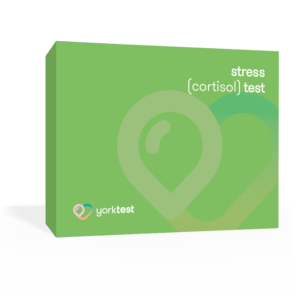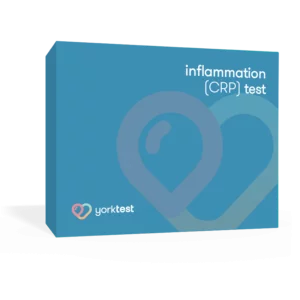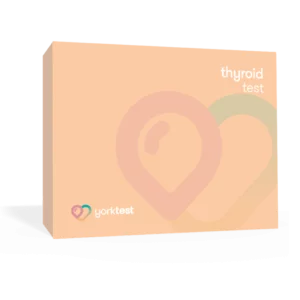How Much Cheese Is Too Much Cheese?
Almost everyone we talk to seems to love cheese. It’s a perfect topping for burgers, complements pizza bases, and is an essential ingredient in many recipes. Avid cheese lovers might argue that there’s no such thing as too much cheese, and they are quick to point out the numerous benefits of eating it. Other parties, mainly doctors and health experts, will point out that overconsumption is never a good thing, regardless of the food.
But how much cheese is too much cheese? It’s tough to give a clear answer. After all, everyone is different. Matters are only complicated further when you consider those of us who have a lactose or dairy intolerance.
In this article, we’ll cover aspects of excessive cheese consumption. Cheese can certainly be good for you, but an unchecked cheese obsession can also be harmful.
Health Benefits of Cheese
Other than the diverse flavours and excellent tastes, there are actually some fairly unique health benefits to cheese.
Low in Carbohydrates
Carbohydrates can be problematic for some people. Luckily for low-carb dieters and people with diabetes, cheese has minimal impact on blood sugar thanks to its low-carb count.
High in Protein
It’s not just bodybuilders who can benefit from having more protein in their diet. Having a high-protein diet can help to increase physical strength, rebuild muscle, keep you fuelled for longer, and help cure food cravings. One ounce of cheese contains an average of 7 grams of protein, which is about 14% of your daily value.
Good For Your Heart
We are always on the hunt for food to help our hearts, and cheese can help your ticker in several ways. The so-called ‘unhealthy’ saturated fat in cheese actually isn’t as unhealthy as first thought. One study that compared cheese to butter found that participants who ate hard cheeses had lower LDL cholesterol (commonly known as bad cholesterol) than those who ate butter. Eating cheese more frequently has been shown to protect against cardiovascular disease.
Lower The Risk of Diabetes
Eating cheese can be good for you. It’s low in carbs and it can lower the risk of diabetes. A recent study revealed that individuals who consumed at least two servings of dairy on a daily basis were less likely to develop diabetes over a nine-year period. This finding is supported by other research, which also highlights the potential health benefits of regular dairy consumption.
Side Effects of Eating Too Much Cheese
As we’ve seen, cheese does have some unique and distinct benefits. However, eating too much may have some unwanted side effects! According to dieters and experts, some of the side effects include:
Heartburn
Experiencing heartburn is never a pleasant experience. Cheese is a rich source of fat and can trigger heartburn in individuals who are more susceptible to it. Because cheese has a high fat content, it can lower the oesophagal sphincter (LES for short): a muscle that can help to prevent stomach acid from flowing back into the oesophagus. This results in the burning sensation that’s commonly known as heartburn. Not everyone will experience heartburn from cheese consumption, but eating too much can drastically increase the likelihood of it for those who are susceptible (or for those who have an intolerance).
Weight Gain
Potentially the most obvious side effect of eating too much cheese is weight gain. If you consume food excessively, even if it’s good for you, there’s a high likelihood that it will result in weight gain. Cheese is high in fat, containing 9 calories per gram. Because of that, if you eat cheese regularly then you may start to see the number on your scales increasing over time.
Diarrhoea & Stomach Problems
If you are one of the unfortunate individuals who can’t break down the milk sugar lactose, or if you are intolerant to the milk proteins in the cheese, then overconsumption of dairy products, such as cheese, can cause serious discomfort, especially when it comes to your stomach.
When someone with a lactose intolerance consumes cheese, the lactose in the cheese isn’t broken down properly by the enzyme lactase. Instead, it is fermented in the gut by bacteria. This can result in diarrhoea and other gut problems. Dairy protein intolerance can cause a range of symptoms including IBS, migraines, low energy, low mood and skin problems.
Dehydration
We all know that not drinking enough water can result in dehydration. However, what is less widely known is that eating foods that are high in sodium can also lead to dehydration. Some cheeses can be high in sodium! Some of the signs that you’re becoming dehydrated include headaches and a decreased need for urination., so keep an eye out for those if your diet contains a lot of cheese.
Feeling Bloated
We’ve probably all been guilty of chowing down on a tasty cheese-filled dish, only to regret it moments later as we start to feel uncomfortable and bloated. Bloating strikes quickly when dairy-sensitive people overeat cheese. The stomach swells, signalling distress. This uncomfortable reaction can occur between 30 minutes and two hours after consumption. For a dairy intolerance this can take hours or even days to show up. Moderation or elimination helps to prevent such digestive issues.
Inflammation
Consuming casein, a protein commonly found in cheese, can lead to certain side effects. One potentially significant side effect is inflammation. For some individuals, casein consumption can trigger an immune response and result in inflammation in the body. This inflammatory response can manifest as a wide range of symptoms, including digestive problems, respiratory discomfort, skin issues and joint pain. For individuals with a true allergy or sensitivity to casein, the immune system recognises casein as a threat and releases inflammatory mediators, leading to adverse (and sometimes severe) reactions. This also applies to other milk proteins found in cheese such as whey, lactalbumin and lactoglobulin.
Association With Prostate Cancer
It may surprise you to know that men should pay particular attention to how much cheese is included in their diet. This is because there is an association between higher amounts of dairy products and an increased prostate cancer risk.
While these are some of the potential side effects of overconsuming cheese, they don’t represent an exhaustive list. If you feel that your cheese consumption is on the higher side and you seem to experience side effects, it’s always wise to consider cutting down or speaking to a health professional/nutritional therapist.
So… How Much Is Too Much?
When evaluating how much cheese is too much, it soon becomes clear that there’s no definitive answer. There are multiple factors and variables to consider. Regardless, we thought it may be best to provide two answers – one for people without an intolerance, and one for people with none.
Without an Intolerance
If you do not have an intolerance and aren’t sensitive to dairy and cheese, then how much cheese you can eat will be dictated by the rest of your diet. For example, if your diet is low in saturated fats and sodium then having two to three ounces of cheese a day may be safe. However, if you’re trying to eat healthier or have heart problems then you should stick to one ounce of high-quality cheese no more than a few times a week. These amounts are sensible guidelines, but do remember to always evaluate your consumption alongside your overall diet.
With an Intolerance
It’s much more tricky to evaluate recommended cheese consumption for someone with an intolerance. Regardless of the individual variability, if you are lactose intolerant or if you have a reaction to the proteins in the cheese then elimination is usually advised.
There are some caveats to this. Firstly, the type of cheese can influence the amount that you are able to consume. For example, hard or aged cheese is typically lower in lactose content, so those with milder intolerances may be able to consume more of this type of cheese. Soft cheese has slightly higher lactose levels but is still usually lower than fresh cheese, which has the highest lactose content of all.
The severity and type of the intolerance will also play a role in how much cheese you can consume. Some people may be able to tolerate a moderate amount of cheese consumption, while others may not be able to tolerate any without notable discomfort.
The good news is that, even if you have an intolerance, there are options available. There are many lactose-free, dairy free and vegan cheese alternatives, and you can find a range of useful content right here on our site:
If you have a milk cheese allergy then you have to totally avoid milk based cheeses as allergies are potentially life threatening.
Contact YorkTest if You Think You May Have an Intolerance
If you think you may have a dairy (milk or cheese) intolerance, or any other kind of intolerance for that matter, then please contact the YorkTest team today. Our food intolerance tests can help you identify an intolerance, and our food allergy tests can do the same for allergies, helping you to take a significant step towards a healthier life.













